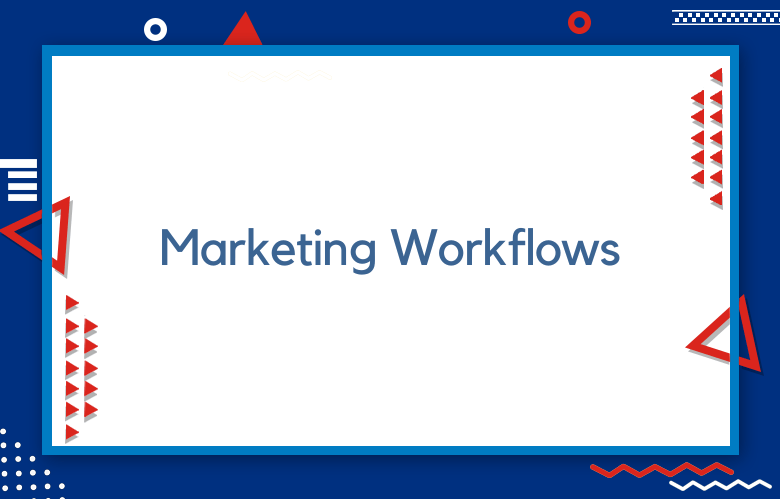How to Get Started with Agile Marketing

Agile marketing is a way of life for many businesses. It can be overwhelming to know where to start if you’re just getting started. The guide helps you get started on the right foot and reap the benefits of agile marketing. By following these simple steps, you’ll be on your way to becoming a lean, mean marketing machine!
Agile marketing may be the answer if you’re looking for a way to boost your marketing strategy. Agile marketing is a flexible, adaptable approach that can help you respond quickly to changes in the market and produce better results. But getting started with agile marketing can seem daunting.
- What is agile marketing, and what are its benefits?
- How can you start using agile marketing in your own business?
- What tools and resources are available to help you get started?”
- How do you adapt agile marketing to meet the unique needs of your business?”
- What are some common challenges businesses face implementing agile marketing, and how can they be overcome?”
What is Agile Marketing, and how does it work?
Agile Marketing is a methodology that helps organizations adapt to constant change. Businesses can constantly improve their marketing strategy by using short cycles or iterations. This approach makes companies more responsive to customer needs and market changes.
Agile Marketing is a methodology that focuses on delivering marketing results quickly and efficiently. It’s about being responsive to market changes and customer needs and constantly adapting your marketing strategy.
Many marketing teams are adopting Agile Marketing principles to respond more to the ever-changing landscape. If you’re curious about how it works, here’s a quick overview.
Agile marketing is a process that allows businesses to adapt to changes in the marketplace quickly. It is a methodology that encourages teamwork, collaboration, and constant communication between teams.
Agile marketing is a process that helps organizations be more responsive to change. It involves breaking down projects into smaller pieces so they can be completed quickly and efficiently. Agile marketing can help your team respond to changes in the marketplace faster and get your products or services to market sooner.
The benefits of using an agile marketing approach
- Increased flexibility and responsiveness to change
- More customer-centric focus
- Greater emphasis on collaboration and teamwork
- More effective allocation of resources
- Higher level of creativity and innovation
- More opportunities for collaboration
- Faster response times to customer feedback and changes in the market
- More accessible adaptation to changes in technology
- Greater focus on results rather than processes
- More customer-centric approach
- Easier to adapt to changes in the market
- Greater emphasis on outcomes rather than tasks
- It helps you stay ahead of the competition
- More efficient allocation of resources
- Improved communication and collaboration among team members
- Faster time-to-market for new products and services
- Greater customer satisfaction
- Enhanced creativity and innovation
- More customer-centric approach
- Greater emphasis on collaboration and teamwork
- Increased focus on speed and efficiency
- Ability to adapt quickly to new market conditions
- More effective at dealing with uncertainty and risk
- Easier to adapt to changes in the market
- More customer-focused
- Greater emphasis on collaboration and communication
- Focuses on delivering value to customers
- Allows for more creativity and innovation
How to get started with agile marketing
There’s no one-size-fits-all answer to how to get started with agile marketing. However, some fundamental principles can help guide your approach.
Agile marketing is all about being responsive to change and being able to adapt your plans as new information or opportunities arise rapidly.
A crucial part of this is clearly understanding your goals and objectives and then being flexible in executing them.
You are creating a culture within your organization that values agile marketing principles and practices.
You’ll be better positioned to succeed with agile marketing by creating a supportive environment.
Agile marketing is a methodology that enables marketers to respond quickly and efficiently to changes in the marketplace. It emphasizes collaboration, flexibility, and iteration and builds around the principles of ‘Scrum, a framework for managing work efficiently.
So, how can you get started with agile marketing? First, it’s essential to understand the basics of the agile methodology and how it can benefit your team. Then, you’ll need to identify which marketing processes would benefit most from being switched to an agile approach. Once you’ve done that, you can start putting together your team and getting to work!
Agility in marketing is all about being able to adapt to change rapidly. To be successful with agile marketing, you need to be flexible, and Fallonenlen adjusts your plans on the fly. It can be challenging to start agile marketing, but if you keep these things in mind, you’ll be well on your way to success.
If you’re wondering how to get started with agile marketing, here are a few tips:
- Focus on your customer’s needs and what they value.
- Work in short iterations to make sure you’re always making progress.
- Be flexible and adaptable, as agility is about changing course quickly when necessary.
By following these tips, you’ll be well on your way to becoming an agile marketer!
Tips for making the most of agile marketing
- Understand the agile marketing process
- Prioritize tasks based on their importance and urgency
- Work collaboratively with other team members
- Be flexible and adapt to changes quickly
- Celebrate successes and learn from failures
- Agile marketing is all about being flexible and responsive to change
- It’s essential to have a solid plan but be prepared to change it as needed
- Always be willing to experiment and try new things
- Be open to feedback from your team and stakeholders
- Stay organized and keep track of your progress
- Celebrate successes, but don’t dwell on failures
- Keep communication open and transparent
- Plan your sprints in advance
- Make sure you have all the necessary tools and resources available to you
- Prioritize tasks based on their importance and urgency
- Communicate with team members regularly
- Be flexible- be prepared to change plans when necessary
- Celebrate successes and learn from failures
- Define your goals and objectives
- Understand your target audience
- Choose the right agile marketing tools for the job
- Be flexible and open to change
- Communicate effectively with team members
- Celebrate successes, learn from failures
- Plan your sprints in advance
- Make sure you have the right team to support your agile marketing efforts.
- Prioritize tasks and make sure everyone is on the same page
- Use Trello or another project management tool to keep track of your progress
- Celebrate your successes and learn from your failures
- Establish clear goals and objectives at the beginning of each sprint
- Be realistic about what you can accomplish in a given timeframe
- Communicate with stakeholders regularly to keep them updated on your progress
- Don’t be afraid to ask for help when you need it
- Celebrate successes, no matter how small they may seem
- Learn from failures and use them to improve future sprints
- Understand the agile marketing process
- Plan your work in sprints
- Prioritize tasks based on their importance and urgency
- Communicate with your team constantly
- Be flexible and adapt to changes quickly
- Celebrate successes together
- Plan your work, and then work on your plan
- Be open to change and agile in your thinking
- Prioritize tasks based on their importance and urgency
- Communicate with team members regularly
- Use feedback to improve your marketing efforts
- Celebrate successes and learn from failures
Common challenges faced by agile marketers and how to overcome them
- Lack of communication and coordination between different teams
- Lack of visibility into what other groups are working on
- Inability to track progress or measure results
- Difficulty adapting to changes in market conditions
- Inflexible processes and tools
- Lack of clarity and focus
- Defining and agreeing on what “done” means
- Prioritizing work based on business value
- Managing dependencies with other teams
- Communication within the team and with stakeholders outside the team
- Lack of communication and coordination between different teams
- Difficulty in adapting to changes
- Limited resources
- Defining and measuring success
- Measuring marketing performance
- Lack of team training and skills development
- Inability to prioritize tasks
- Difficulty adapting to change
- Poor communication within the team
- Lack of team motivation
- Defining marketing goals and objectives
- Measuring marketing performance
- Lack of communication and coordination between team members
- Difficulty adapting to changes in priorities
- Inability to track progress and measure results
- Limited resources and budget constraints
- Lack of skills or knowledge in agile marketing methodology
- Poor team morale
- Lack of communication and coordination between different teams
- Difficulty adapting to changes in direction or strategy
- Limited resources and time constraints
- Poor execution due to lack of clarity or understanding of the goal
- Ineffective team meetings that lead to confusion and frustration
- Lack of ownership or responsibility for tasks
- Defining agile marketing and its benefits
- Lack of communication and transparency between teams
- Defining and agreeing on what “done” means
- Prioritizing work when there are always new tasks to complete
- Handling changes and unexpected problems
- Difficulty in adapting to changes
- Poor task management
- Defining marketing goals and objectives
- Measuring the success of marketing campaigns.
Conclusion
As you can see, agile marketing is a process that can be adapted to any organization’s size and industry.
Remember that the key to success with agile marketing is constant communication and collaboration between team members.
Contact us today if you’re ready to start agile marketing or would like help adapting this process for your business.
Our team of experts has years of experience helping businesses like yours implement successful agile marketing plans.
Call: +91 9848321284
Email: [email protected]



